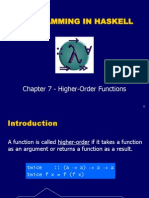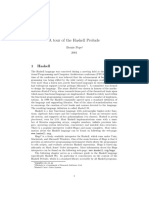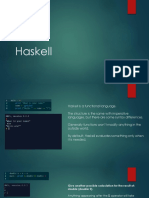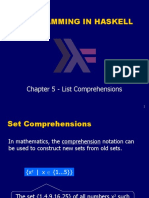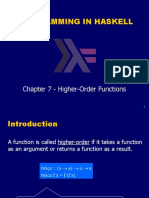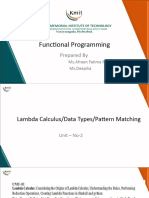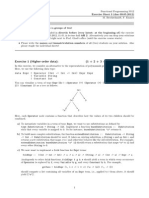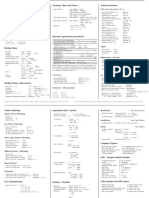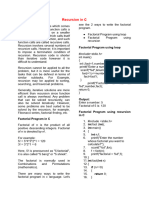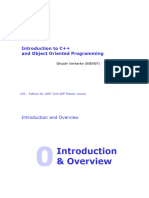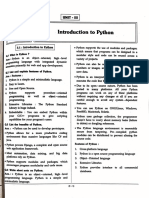0% found this document useful (0 votes)
6 views35 pagesRecursion
The document discusses recursion and higher-order functions in Haskell, highlighting various examples such as maximum, replicate, take, zip, and quicksort. It explains the use of lambda expressions, higher-order functions, and foundational functions like map, filter, and fold. The content emphasizes the efficiency and power of functional programming constructs in Haskell.
Uploaded by
gogimo1970Copyright
© © All Rights Reserved
We take content rights seriously. If you suspect this is your content, claim it here.
Available Formats
Download as PDF, TXT or read online on Scribd
0% found this document useful (0 votes)
6 views35 pagesRecursion
The document discusses recursion and higher-order functions in Haskell, highlighting various examples such as maximum, replicate, take, zip, and quicksort. It explains the use of lambda expressions, higher-order functions, and foundational functions like map, filter, and fold. The content emphasizes the efficiency and power of functional programming constructs in Haskell.
Uploaded by
gogimo1970Copyright
© © All Rights Reserved
We take content rights seriously. If you suspect this is your content, claim it here.
Available Formats
Download as PDF, TXT or read online on Scribd
/ 35



